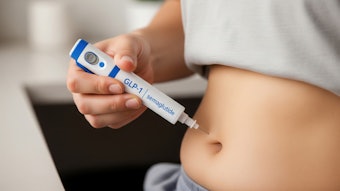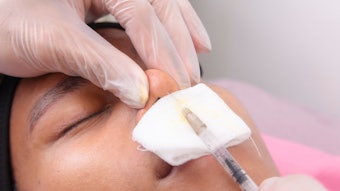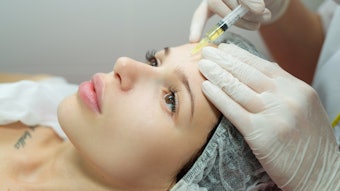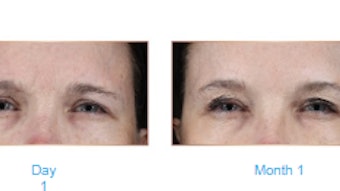
The periocular region of the face is one of the first things that others notice about us, and unfortunately, it is also one of the first areas to show signs of aging. Demand for upper facial rejuvenation—in both men and women—has dramatically increased in the past decade. In the last 10 years, eyelid surgery has been one of the top five most commonly performed surgical procedures, along with facelift (rhytidectomy) and rhinoplasty.
Blepharoptosis, or simply ptosis, refers to when the upper eyelid droops with the eyes in the primary position of gaze. Drooping of the eyelids, which can occur in all age groups and is caused by a variety of factors, may produce a functional or a cosmetic deficit. Aponeurotic ptosis, also known as involutional ptosis, is the most prevalent form of the condition in adults, and it is most often due to dehiscence or disinsertion of the levator aponeurosis.2
Blepharoplasty, which also can be performed for functional or cosmetic reasons, rearranges excess tissue in the lid. Ptosis repair, on the other hand, tightens the levator or Muller’s muscle to lift the lid and open the eye wider. My colleagues and I have found that about 50% of the patients that present to our practice seeking eyelid rejuvenation actually require a combination of both of these procedures.
Blepharoplasty Considerations
Many patients will seek blepharoplasty for cosmetic concerns related to the amount of excess skin or dermatochalasis. Significant excess upper lid skin or fat protrusion (steatoblepharon) can cause hooding and visual obstruction, and the presence of either is an indication for upper lid blepharoplasty. Care must be taken not to remove an excessive amount of skin or fat during resection.
Andrew Harrison, M.D., is a professor of Ophthalmology and Otolaryngology and the director of Oculoplastic and Orbital Surgery at the University of Minnesota Medical School. He is a consultant and speaker for RVL Pharmaceuticals.











